detail profile paul h c3 bcttel
Peran Yang Di Mainkan Paul Hüttel
 When a selfappointed expert on love...
When a selfappointed expert on love...Ehrengard: The Art of Seduction 2023
When a self-appointed expert on love tries to teach a timid prince the art of seduction, the plan backfires, leading to scandal — and unexpected romance.
 Karlskov is a self made successful...
Karlskov is a self made successful...Into the Darkness 2020
Karlskov is a self made, successful owner of a large electronics factory, has a wife and five children. They live the good, privileged upper-class life on Strandvejen north of Copenhagen when the Nazis occupy Denmark in April 1940. Karl struggles to continue production at the factory, but to protect his family and employees he reluctantly begins to produce for the German market. It brings him into a controversial collaboration with the occupying power and causes painful breaks in the family.
 Policeman Lasse rehabilitates young prisoners by...
Policeman Lasse rehabilitates young prisoners by...The Bad Seeds 1996
Policeman Lasse rehabilitates young prisoners by taking them on survival course in the Swedish wasteland. And before he has to retire due to illness, he arranges one last trip.
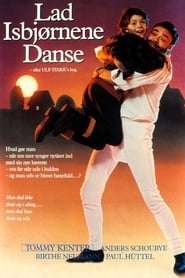 At age 12 Lasse is a tough...
At age 12 Lasse is a tough...Dance of the Polar Bears 1990
At age 12, Lasse is a tough guy and a bright one. His life is changed when his mother, pregnant at the time, abandons his beloved father. She takes Lasse with her to live with her new paramour, a dentist as authoritarian as Lasse's Elvis Presley-fan butcher dad was easy-going. The dentist has a daughter, too, and she is a jealous schemer. Lasse tries hard to conform, but can a tiger change its stripes?
 A new foreman Huus arrives in...
A new foreman Huus arrives in...Katinka 1988
A new foreman, Huus, arrives in a sleepy Danish village, much to the delight of the unmarried women there. However, Huus becomes very friendly with Katinka and her husband, Bai, the stationmaster. Katinka, childless and in frail health, gradually falls in love with Huus, though her husband does not seem to notice. Based on the work by Herman Bang.
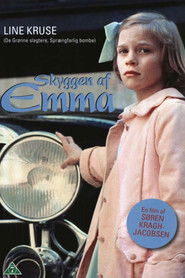 Emma Line Kruse is an eleven...
Emma Line Kruse is an eleven...Emma's Shadow 1988
Emma (Line Kruse) is an eleven year-old only child from a wealthy Danish family. Emma's parents seem more interested in their own interests than in her. One evening when Emma overhears her mother talking about how tragic it must be to have your child kidnapped, Emma decides to stage her own kidnapping. She soon meets Malthe, a kind-hearted, child-like, naïve sewer cleaner who literally stumbles on to her. She convinces Malthe that she is a Russian princess whose family is being chased by Bolsheviks, so Malthe lets Emma stay with him in his very modest abode. After being "kidnapped" for a few days, Emma decides to return home. But, just as she is about to return, she overhears a couple of servants talking about how her parents don't seem to be very upset over her dilemma....
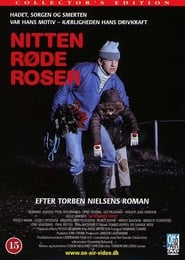 After his girlfriend is killed in...
After his girlfriend is killed in...Nineteen Red Roses 1974
After his girlfriend is killed in an automobile accident, a man decides the best revenge on those responsible is to murder their loved ones.
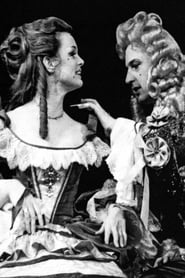 Bergman took one of his favourite...
Bergman took one of his favourite...The Misanthrope 1974
Bergman took one of his favourite plays to Copenhagen for a guest performance, which was even broadcast on Danish TV. In his Copenhagen The Misanthrope, Bergman maintained a dual approach. On the one hand, a production of Molière's play as a theatrical game performed in style and intellectually conceived; on the other hand, an exposure, through physical and psychological intensity, of the emotional tragedy in which Alceste and Celemine are both victims. Expectations were high prior to Bergman's production of The Misanthrope. A reviewer wrote, 'For the first time Molière's connection to the Danish stage is intercepted by a director whose forte is physiological tragedy, Strindberg over Holberg'. Many reviews had expected Bergman to put his very personal stamp on the production. Instead they experienced 'a clean Molière' and were struck by Bergman's faithfulness to the original mise-en-scene and to the classical rhythm of Molière's text.
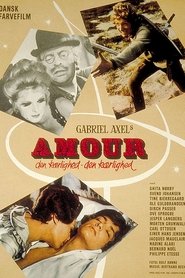 This threepart movie begins with a...
This threepart movie begins with a...Amour 1970
This three-part movie begins with a young woman married to an older, cold-hearted man in the year 1200. Two rivals have a swordfight over the affections of the woman. Part two takes place in 1910 and finds an amorously unfaithful wife taking on her many lovers while her unsuspecting husband lurks nearby. The final part finds a count and countess engaging in extramarital affairs in France during the 1840s.
 A young idealistic business student has...
A young idealistic business student has...The Song of the Red Ruby 1970
A young, idealistic business student has ambitions to be a concert pianist, but his obsession with beautiful women keeps him from achieving his goal. To earn money for his tuition, he takes a job as headmaster of a small girls' school. There his weakness for beautiful women is put to the test when he is pursued by a bevy of sexy coeds.
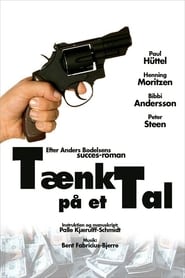 The story opens just before Christmas...
The story opens just before Christmas...Think of a Number 1969
The story opens just before Christmas, when solitary, apathetic bank clerk Flemming Borck uncovers a plot to rob his bank. After doing a little rookie recon, Borck identifies the would-be bank robber as a faux shopping-mall Santa Claus, and counter-plots to steal the money himself and let Santa take the blame. This works out about as badly as you might imagine, and our bumbling protagonist spirals further and further away from the carefree, laconic lifestyle he had hoped to ensure for himself.

 A gifted engineer flees his austere...
A gifted engineer flees his austere...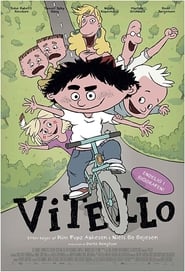 Vitello is brimming with energy and...
Vitello is brimming with energy and...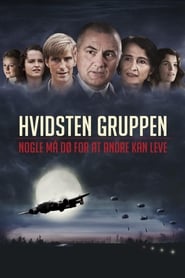 The true story of the Fiils...
The true story of the Fiils... Strings is a mythological story about...
Strings is a mythological story about...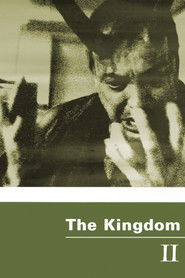 Set in the neurosurgical ward of...
Set in the neurosurgical ward of... Set in the neurosurgical ward of...
Set in the neurosurgical ward of... Metaphysical comedy and love film about...
Metaphysical comedy and love film about...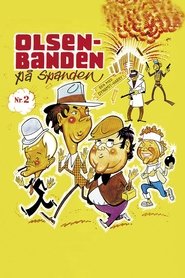 A good looking female social welfare...
A good looking female social welfare...